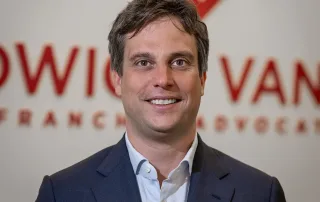The restructuring within the Intergamma formats from a legal perspective
The legal reality is sometimes more unruly than the factual. The controversial issue at Intergamma is a good example of this. Different messages give different views on the dispute. But what was the recent ruling by the Enterprise Chamber of the Amsterdam Court of Appeal really about? This contribution is an attempt to provide insight into the legal issue and the ruling of the Enterprise Chamber.
In a decision dated 22 December 2017 (ECLI:NL:GHAMS:2017:5354), the Enterprise Chamber assessed at the request of Bricorama, and several other shareholders and franchisees, whether there are valid reasons at Intergamma to doubt a correct policy. Will the policy pursued at Intergamma disproportionately harm the interests of (a minority of) the franchisees of Gamma and Karwei if they decide not to participate in a major restructuring at parent company Intergamma?
The intended restructuring
Intergamma acts as a joint purchasing and marketing organization for franchisees who operate Gamma or Karwei DIY stores. The structure is complex, with shares in Intergamma being held by different entities, all indirectly representing the franchisees as well. One of these entities is major shareholder Van Neerbos Groep (“VNG”).
A revised strategy has been mapped out, which includes positioning the Gamma (constructive) and Karwei (decorative) formulas further apart, as well as strengthening the cross-channel strategy, e-commerce and webshops and building a network of smaller Gamma city stores.
The reassessment of this strategy will be shaped by a restructuring of the Intergamma organisation. It is important that Intergamma will take over major shareholder VNG. In addition, franchisees will be asked to acquire membership rights in a cooperative against contribution of their shares in Intergamma and to enter into a new franchise agreement in which a lower purchase bonus is agreed.
The restructuring is called the Guinness project and is a complex transaction worth more than half a billion euros (including the real estate), resulting in corresponding risks and financing costs for Intergamma, with a major change in the structure and governance of the Intergamma organization and with far-reaching consequences for its shareholders/franchisees.
The financing problem
The takeover of VNG, as part of the Guinness project, could only succeed if more than 85% of the shareholders/franchisees support the takeover and thus participate in the new organizational form in order to also arrange financing. This percentage of participating franchisees is not reached. It turned out that 76% supported the takeover. This would not allow the required financing of the Guinness project.
Intergamma subsequently informed the shareholders/franchisees that it would hold talks with banks about an adjusted financing structure, in order to allow the Guinness project to succeed in an adjusted form. It is not yet clear how exactly this adjustment will be shaped.
Bricorama is a shareholder and franchisee and, together with several other shareholders/franchisees, has asked the Enterprise Chamber, among other things, to prohibit Intergamma from taking any further decision for the implementation of the Guinness project, or a similar plan. This is based, among other things, on the assertion that the control position and financial position of the franchisees who will not participate will deteriorate unacceptably in the Guinness project to be adjusted.
Disproportionately disadvantage non-participating franchisees
The central question is whether the interests of non-participating franchisees are disproportionately harmed. This may consist of loss of control or deterioration of the financial position of the franchisees who do not participate in the Guinness project.
With regard to the change in control, from the franchisees the following.
There is currently no direct relationship between the equity interest of franchisees on the one hand and the turnover they realize as franchisees. The consequence of the Guinness project, according to the Enterprise Chamber, is that the non-participating franchisees as shareholders of Intergamma together will form a minority, in addition to the collective of participating franchisees as the majority shareholder and that the aforementioned collective will be the sole director of Intergamma. The control of the non-participating franchisees as shareholders in Intergamma is then in line with their position of minority shareholders and, in the opinion of the Enterprise Chamber, this does not constitute an unreasonable disadvantage for the non-participating franchisees.
The Enterprise Chamber does consider it problematic that the Supervisory Board would receive an annual salary as a bonus if the Guinness project were to go ahead. In the case of the supervisory directors appointed by VNG, this can materially affect the extent to which the supervisory directors appointed by VNG are able to serve the corporate interest of Intergamma in an unbiased manner during the deliberations and decision-making within the supervisory board regarding the approval of the project Guinness.
With regard to the financial position, the following.
The non-participating franchisees will retain their current financial entitlements against Intergamma for the redemption bonus and dividend. That the non-participating franchisees would be (sufficiently) shielded from the guarantee to be provided by Intergamma to the consortium of banks will have to be apparent from the financing documentation that Intergamma will still have to provide to the shareholder/franchisees.
The fact that less than 85% of the shareholders/franchisees do not want to participate in the initial Guinness project does not mean that Intergamma should have decided to abandon the Guinness project. There is no question of a commitment to the dissenting minority. However, the support requirement set by Intergamma does require that the shareholders/franchisees must be given the opportunity, after the adjustment of (the financing of) the Guinness project, to reassess this.
The pending changes have far-reaching consequences and require that the shareholders/franchisees, not only in their capacity as indirect shareholders, but also in their capacity as franchisee, Intergamma adequately and generously inform them about the content and consequences of the further agreements of Intergamma with regard to the additional financing required, also in view of the disappointing number of participating shareholders/franchisees.
The Enterprise Chamber ruled that Intergamma’s provision of information to its shareholders/franchisees was inadequate at an earlier stage. Now that Intergamma has promised to provide the necessary information after all, so that the modified Guinness project will be presented to the general meeting of shareholders at the information meeting to be held and subsequently for decision-making. The Enterprise Section therefore does not consider it necessary to take immediate measures with a view to the forthcoming decision-making on the Guinness project.
Conclusion
The ruling shows that the shareholders/franchisees must be adequately and generously informed about the content and consequences of (further) agreements made by the franchisor about the intended (amended) restructuring of the franchise organisation. Without this information, the interests of a minority of shareholders/franchisees could be disproportionately harmed. After all, only then can the franchisees make a well-considered decision to participate and opt for the new franchising method. Intergamma’s decision-making on the continuation of the modified Guinness project will also have to be organized differently. This means that the modified Guinness project is not over, but Intergamma, as well as the shareholders/franchisees, must be able to decide on it in a different or more careful manner.
It is important for franchisors that they provide their franchisees with proper and well-considered information about their control position and financial position in the event of (proposed) restructuring, in the light of their specific individual situation.
mr. AW Dolphijn – franchise lawyer
Ludwig & Van Dam Franchise attorneys, franchise legal advice. Do you want to respond? Go to dolphijn@ludwigvandam.nl .

Other messages
(Im)possibilities in case of bankruptcy
The past few years have been a period with ...
Ludwig & Van Dam in Distrifood about the future of independent supermarket entrepreneurs
However, many retailers are now at a loss due to ...
No standstill period for prior collaboration based on the same formula
On December 29, 2023, ECLI:NL:RBDHA:2023:20931, the District Court of The ...
Standstill period: four weeks is and remains four weeks!
Standstill period: four weeks is and remains four weeks! ...
Strict application of standstill period
In a judgment of the District Court of The Hague ...
Ludwig & Van Dam in De Telegraaf: Uncertain times arise for franchisees if the formula goes bankrupt
In the Financial Telegraaf of February 9, 2024, Alex Dolphijn ...







